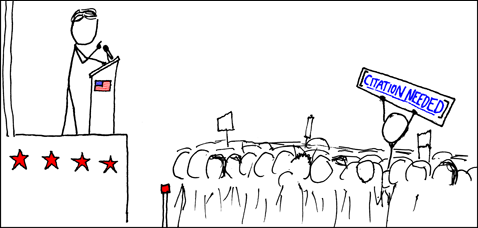How a student fooled the world's media

On the 28th March, Shane Fitzgerald who studies at the University of Dublin, began an experiment which could put journalism into disrepute, by faking a quote on Wikipedia and measuring the spread across the world's media outlets.
Maurice Jarre, a famous French composer, died in late March this year with the news spreading across the world of his death. With floods of comments, obituaries and reports on the news, Fitzgerald possibly unknowingly at the time, uncovered the influence of Wikipedia even on professional journalists after a fake quote was used by newspaper outlets and media websites all over the world.
As writers were working on their own obituary of the composer, journalists were scrambling to push their work for the morning presses. In doing so, they made a potentially fatal (to their careers) a trip to Wikipedia for sources.
As Wikipedia articles can be edited by anybody up to the second, Fitzgerald published the fake quote soon after Jarre's death. With different policies rolled out over time to prevent abuse and deliberate vandalism on certain controversial pages, such as the presidential candidates during the 2008 US election campaigns, editors were soon to see the lack of citations attached to the quote and was removed soon after.
This, however, was not enough time for the journalists to minimise their risk of mistake.
He told Siobhain Butterworth from the Guardian, one of the newspapers who published the fake quote, and the only outlet to issue a retraction afterwards:
"My aim was to show that an undergraduate university student in Ireland can influence what newspapers are doing around the world and also that the reliance of newspapers on the internet can lead to some faults."
Whilst he admits that "journalists should not avoid Wikipedia", rather that they should at least find it from another source afterwards; through accurate citations which Wikipedia articles use to back up information on the site.
My thoughts
Journalism can be rushed and sometimes it is necessary. With some journalists focused mainly on readership and page view counts, the archetype of a typical writer is slowly being undermined.Even with some of my best work, articles that I am most proud of do not include those which I have written about Windows 7 and "anticipated and popular" choices. Articles such as the news of the New York Hudson river plane crash, and citizen journalism capturing the counter-terror arrests of 11 students were written quickly as breaking news, but received less than half a percent of the page views I received for the month.
But these are the articles which make me proud to call myself a "professional journalist", even though I can blur the lines on occasion.
My colleague, close friend, and when I was beginning on here, mentor, said something to me which I will take to my grave, as one of the most poignant quotes I have ever heard. Talking to me about media spin, exclusives, and the priorities we hold dear to us in life, she said:
"People are more interested in Britney Spears than they are about Darfur."
